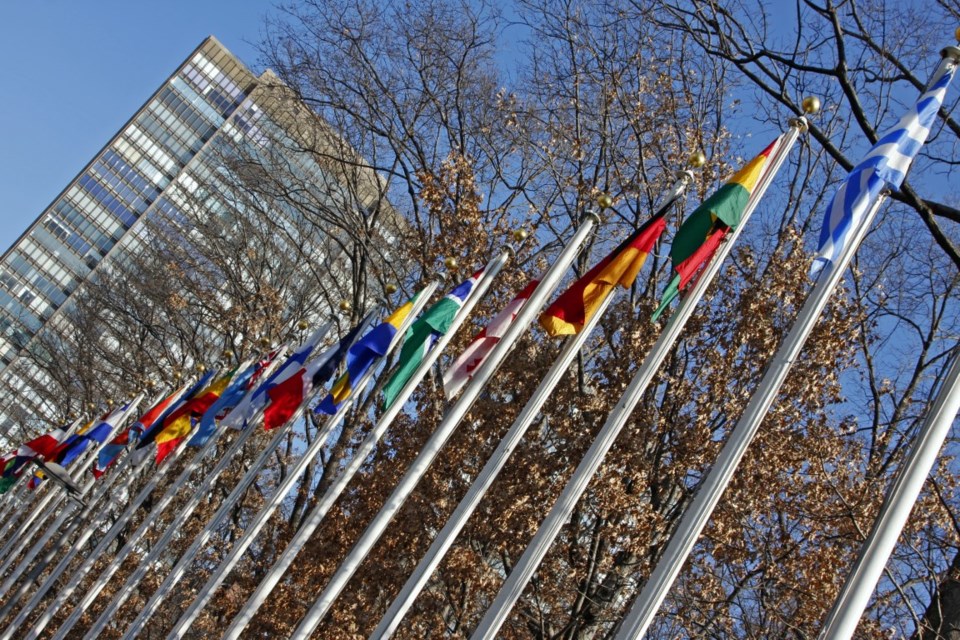WESTERN PRODUCER — Significant progress has been made at the World Trade Organization on one of the biggest trade irritants facing Canadian agriculture, says an industry official.
A declaration on sanitary and phytosanitary (SPS) measures was made at the WTO’s 12th Ministerial Conference (MC12), the first such gathering since 2017.
The WTO gave marching orders to its SPS Committee to “further enhance” implementation of the existing SPS Agreement.
The committee will be charged with identifying and addressing existing and emerging challenges to implementation of the agreement.
“That was a pretty positive development and it kind of came out of nowhere,” said Greg Northey, vice-president of the Canadian Agri-Food Trade Alliance.
The hope is that the directive will result in fewer non-tariff trade barriers, which have become a major headache for exporting nations like Canada.
Importers have been blocking grain shipments for containing things like unwanted crop protection products or weed seeds. Some agriculture officials contend SPS issues are a bigger barrier to trade than tariffs.
The European Union had been opposed to reforming SPS rules because it is taking a different approach than much of the rest of the world for regulating things like pesticides.
“What ended up happening is the EU lifted their objection and they signed on,” said Northey, who attended the MC12 meetings in Geneva, Switzerland.
“So now there’s a pretty clear pathway for the WTO to start to have a bit more robust rules around that.”
CropLife Canada and Canadian grain companies told him they were pleased with the outcome.
American farm groups are happy that a proposal from India appears to be dead in the water, at least for the time being.
Twenty-one U.S. farm groups sent a letter to U.S. President Joe Biden prior to the meeting urging his administration to oppose the public stockpiling proposal.
They believe India is exploiting the global food crisis by pushing for unlimited allowance of trade-distorting price supports tied to government stocks of grain.
“This would render WTO rules on agricultural domestic support meaningless to the world’s farmers while benefiting only a few developing countries,” said the U.S. farm groups.
They contend that developing countries have been using price supports and input subsidies to significantly boost food production over the past decade.
“As a result, these countries now have massive government-controlled stocks tied up in programs that are subject to political manipulation,” said the groups.
Dalton Henry, vice-president of policy with U.S. Wheat Associates, said India’s proposal was of particular concern to wheat exporters.
India was essentially pushing for more flexibility to export heavily subsidized government stockpiles of the crop.
WTO member countries had previously agreed to a “peace clause” allowing countries like India to exceed their WTO subsidy limits as long the wheat was used for domestic food security programs.
But every six or seven years India’s stockpiles would build to the point where it couldn’t properly store the wheat anymore and it would push the heavily subsidized wheat onto world markets. The last time that occurred was 2013.
“They become an eight million tonne exporter essentially overnight, which disrupts global markets in a big way,” said Henry.
Analysts initially thought this would be another big export year, with forecasts calling for up to 10 million tonnes to be shipped out by India. But the government recently implemented an export ban to keep food price inflation in check.
Henry said India’s proposal may continue to be discussed but for the moment it is not being actively considered.
Northey said another welcome development at MC12 was the commitment by the WTO to reform its dispute settlement mechanism.
The WTO’s dispute resolution appellate body ceased functioning in 2019 when the U.S. started blocking appointment of judges to replace those whose term expired.
Members are currently able to take disputes to the WTO but they are unable to get a final ruling if there is no mediated solution to the problem.
Northey said the U.S. acknowledged at MC12 that it is necessary to have a functioning appellate body, so that is a step in the right direction.
Contact [email protected]

